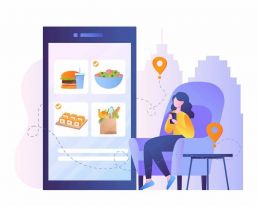The Delivery Marketplace Apps Builder
Start strong with an all-in-one platform offering more than 86 features
Client App, Client web site, Delivery App, Vendors App, Admin panel, Push Notifications, Tracking, Loyalty system and more

The Delivery Marketplace Apps Builder
Start strong with an all-in-one platform offering more than 86 features
Client App, Client web site, Delivery App, Vendors App, Admin panel, Push Notifications, Tracking, Loyalty system and more


Fully customizable
The platform is fully customizable under your brand and needs, we will help you in every step
Powerful Features
Order, Preorder, Click & Deliver, Click & Collect, Push Notification, DeliveryTracking, Cash tracking, Loyalty, ePayment, Mobile payment, Coupons, Analytics, Automation, and more
Optimize your resources
Start quickly and strong without heavy investment, our pricing is based on accessible setup costs and a monthly subscription
Hyperlocal Food Delivery: A Game-Changer for Small-Scale Food Businesses
More and more individuals and small businesses are looking at hyperlocal food delivery as a viable, sustainable and effective way of thriving in the industry.
As our everyday lives get more and more busy, having access to quality food from local stores and kitchens, can provide a convenient and unique way of experiencing new food, saving money, and helping the environment.
In this article we will discuss how hyperlocal food delivery is a concept that has the potential to disrupt the entire food industry, and bring control and power back in the hands of the businesses that create the food to begin with. Enjoy!
About hyperlocal food delivery
While a relatively new term, hyperlocal food delivery pertains to a business strategy, wherein products are procured from nearby sources, before being transported to consumers in a limited geographical region. This technique enables quicker delivery and a customized encounter for clients.
And this hyperlocal on-demand delivery model is already revolutionizing the small-scale food industry. As many customers see an increased quality of their food, faster delivery times, and the ability to support local businesses and farmers.
These days, the use of smartphones is facilitating this massive shift in how we order food, as clever apps and platforms are allowing customers to easily order groceries, food, and medicine with just a few taps on their screens.
Choosing the best platform
When starting a hyperlocal delivery business, one of the most important considerations, is what platform or software to use. There are a few major brands on the market as of writing, such as Cosmind, Hyperlocal Cloud, Locus and more.
Comparing these different services can be beneficial for the individual business, in order to find the exact features and price ranges that works best for them and their clients.
Cosmind in particular has set itself apart from the competition when it comes to hyperlocal food delivery, due to the countless different features, a fully customizable platform that enables small businesses to add their own branding and logo features, as well as a complete app and website for their clients to order the food from.
It even includes a delivery app, admin panel and push notifications, as well as a clever tracking feature, that lets clients know when to expect their food. Cosmind makes it easy to handle customers orders, expand or edit the product catalog, set and adjust prices, as well as run promotions, and even the option of allowing customers to review their delivery and food.
It can be difficult to switch from some platforms, so you should think about the future growth potential of your business, and ensure that it can accommodate your expanding needs and adapt to changes in your operations when your business grows in popularity.
In many ways, Cosmind works similar to a fully functional ecommerce store, with analytics, tracking, and everything else we have come to expect from a modern solution. And unlike some of the competitors, Cosmind also allows a steady increase in revenue and orders, meaning you can scale your business as needed with this particular platform.

Choosing which products to offer
The next step is to decide which products or services to offer. As with any business, we suggest you explore the local demographic in your area, in order to figure out which values and which products you should aim for.
It might be beneficial to focus on one type of concept in culturally diverse urban areas, as opposed to a suburban area for instance. It is also important to figure out whether you are planning to sell baked goods, prepared meals, specialty foods, or fresh produce. Having a clear vision will guide your ingredient selection.
Once you have narrowed down your options, you should then look at how you can combine these factors with the constant need of fresh supplies, quality ingredients, and a sustainable business model for the ultimate service.
It is recommended to prioritize ingredients that are fresh and in season, whenever possible, but also to provide a few staple recipes that can be made year round, so returning customers know exactly what to expect when ordering from your business. Local produce that is harvested recently tends to have superior flavor, quality, and nutritional value.
Sourcing and pricing
The next step could be to identify local farmers, producers, and suppliers who offer high-quality ingredients in your area. Visit farmers’ markets, attend food trade shows, and reach out to local agricultural organizations to connect with potential suppliers.
Before settling on a specific menu, it is also important to consider the final pricing, ie. what the consumer needs to pay. You should research the competition in your area, to ensure your products and services are competitively priced, or at least win out in terms of quality or sustainability.
Therefore, you should assess the cost of ingredients and products to ensure they fit within your budget. While supporting local suppliers is important, you also need to maintain profitability. Strike a balance between quality and affordability to offer competitive prices to your customers.
Businesses we serve






